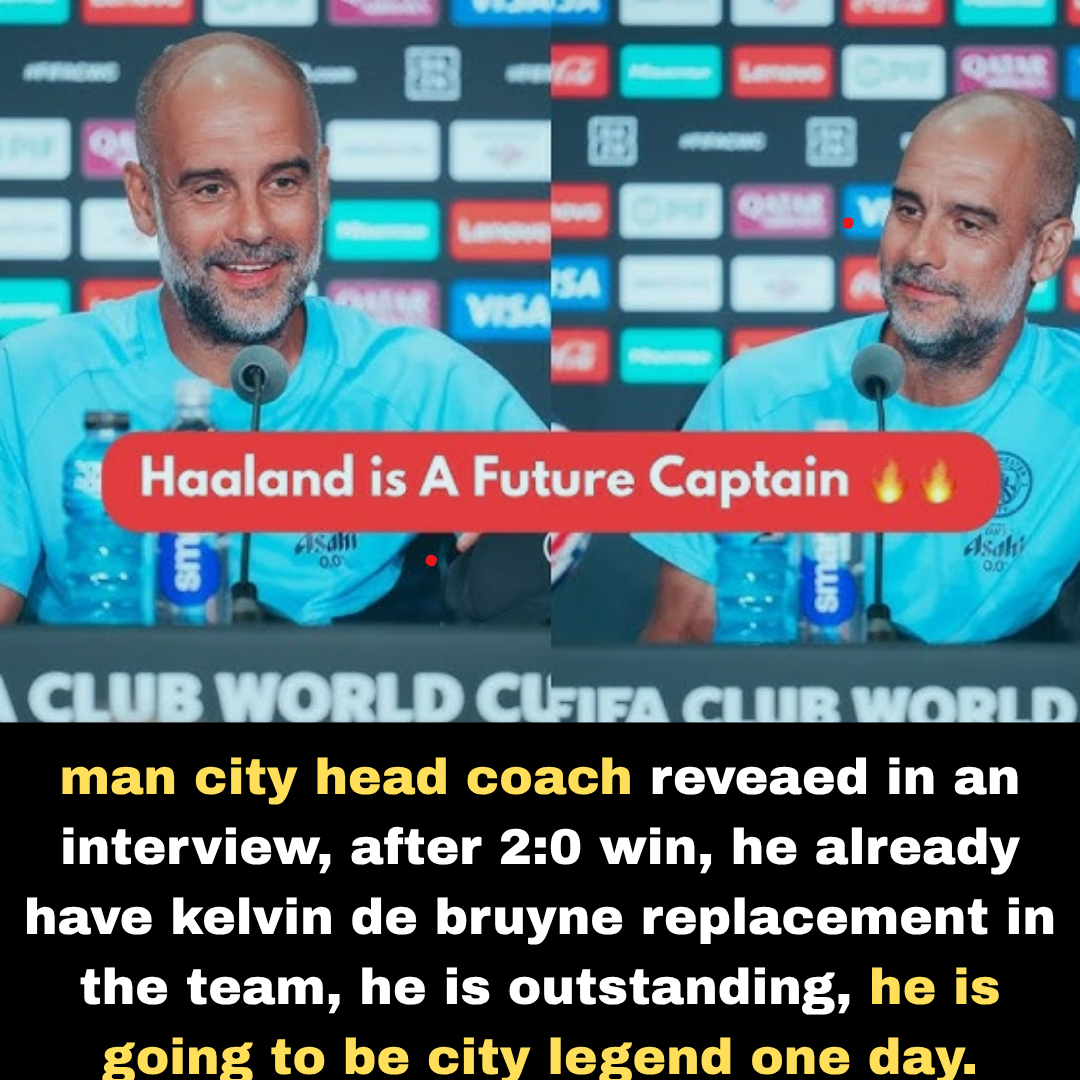Phil Foden ‘wants to prove doubters wrong’ after firing Man City to victory in Club World Cup

The humid Philadelphia air hung heavy over Lincoln Financial Field as Manchester City prepared to embark on their Club World Cup journey, but for Phil Foden, the atmosphere felt refreshingly different. After a turbulent 2024-25 season that saw both the player and his team struggle to maintain their usual high standards, the 25-year-old England international was determined to write a new chapter in his career. His early goal and commanding performance in City’s 2-0 victory over Wydad Casablanca on Wednesday evening served as both a personal statement and a promising sign for the club’s ambitions in this prestigious tournament.
The match, which kicked off City’s campaign in the expanded Club World Cup format, provided the perfect stage for Foden to demonstrate his renewed hunger and commitment. Within just two minutes of the opening whistle, the Stockport-born midfielder had already made his mark, finding the back of the net with a finish that reminded observers of the player who had been instrumental in City’s fourth successive Premier League title triumph just two seasons prior.
The Weight of Expectation and Disappointment
To understand the significance of Foden’s performance against Wydad, one must first appreciate the context of his previous campaign. The 2024-25 season had been one of the most challenging periods in recent memory for Manchester City, and Foden found himself at the center of much of the criticism. Having emerged as the club’s star performer during their historic fourth consecutive Premier League title win, expectations had never been higher for the versatile midfielder.
The pressure of following up such a stellar individual campaign proved to be overwhelming. Foden’s creativity seemed stifled, his usual spark dimmed by the weight of expectation and the team’s collective struggles. Goals became harder to come by, assists dried up, and the player who had once been hailed as the future of English football found himself questioning his own abilities.
“It was a difficult season. I’m not going to lie, it was not the best,” Foden admitted with characteristic honesty in his post-match interview. The admission reflected not just personal disappointment but also the broader malaise that had affected the entire squad. For a player who had grown accustomed to success and had been earmarked as a key figure in City’s long-term plans, the struggles of the previous campaign had cut particularly deep.
The criticism from media and fans alike had been relentless. Questions were raised about his consistency, his ability to perform under pressure, and whether he could truly be considered among the elite players in world football. Social media became a battleground where every misplaced pass or missed opportunity was dissected and criticized. For a young player still developing his mental resilience, the constant scrutiny took its toll.
The Importance of Rest and Reflection
Recognizing the need for a reset, Foden made the difficult but ultimately wise decision to withdraw from England’s recent international fixtures. The choice was not taken lightly, as representing his country had always been one of his greatest honors and sources of motivation. However, the mental and physical fatigue accumulated over years of continuous football had reached a breaking point.
“I can’t remember the last time I had a significant spell of rest,” Foden reflected, highlighting the relentless nature of modern football. The comment resonated with many observers who had noted the increasingly demanding schedule that top-level players face. Between domestic competitions, European tournaments, international fixtures, and summer competitions, the calendar leaves little room for genuine recovery.
The decision to step away from international duty was met with mixed reactions. Some criticized it as a lack of commitment to the national team, while others praised it as a mature decision that prioritized long-term performance over short-term appearances. Foden himself was clear about his motivations: “Not a lot of footballers these days get much time off, so it was very important. I struggled to switch off completely but I just rested with the family, did my own thing and stuff. I needed it.”
The time away from football allowed Foden to rediscover his love for the game. Away from the pressure of weekly matches and constant media attention, he was able to reflect on his career, his goals, and what he wanted to achieve moving forward. The break also provided an opportunity to spend quality time with his family, something that had been increasingly difficult given his hectic schedule.
A New Role, A New Perspective
The Club World Cup provided the perfect opportunity for Foden to showcase his renewed mindset and expanded skill set. Perhaps most intriguingly, manager Pep Guardiola deployed him in a deeper midfield role than he had traditionally occupied. This tactical adjustment reflected both Guardiola’s tactical flexibility and his confidence in Foden’s ability to adapt and evolve as a player.
“When they had the ball I was playing as a holding midfielder, so it’s something I’ve not been used to but I enjoyed it,” Foden explained. The position required different skills and responsibilities compared to his usual attacking midfield or wide positions. Instead of primarily focusing on creating chances and scoring goals, he was tasked with controlling the tempo of the game, breaking up opposition attacks, and providing a foundation for City’s build-up play.
The role suited Foden’s technical abilities perfectly. His exceptional first touch, vision, and passing range made him ideally equipped to dictate play from a deeper position. Moreover, the position allowed him to influence the game for longer periods, rather than relying on moments of individual brilliance in the final third.
“I want to be in the middle as much as I can,” Foden stated, revealing his ambition to become more central to City’s tactical setup. This desire to take on greater responsibility within the team structure suggested a maturity and understanding of the game that had perhaps been lacking during his struggles the previous season.
The Perfect Start
The match against Wydad Casablanca could not have begun better for Foden and Manchester City. Just 120 seconds into the contest, the midfielder found himself in the right place at the right time to convert an early opportunity. The goal was a thing of beauty, showcasing the clinical finishing ability that had made him such a feared opponent during his breakout seasons.
But it was not just the goal that impressed; it was the manner in which Foden carried himself throughout the match. His movement was sharp, his passing crisp, and his decision-making appeared to have returned to the level that had made him one of Europe’s most promising young talents. The confidence that had seemed to desert him during the previous campaign was clearly returning.
The assist for Jeremy Doku’s goal just before halftime further demonstrated Foden’s renewed influence. His corner kick delivery was perfectly weighted, allowing the Belgian winger to head home City’s second goal of the evening. It was a reminder of Foden’s versatility and his ability to contribute to the team’s success in multiple ways.
Team Dynamics and New Faces
The match also provided an opportunity to observe how Foden integrated with City’s evolving squad. The presence of debutants Tijjani Reijnders and Rayan Cherki added new dynamics to the team’s play, and Foden’s ability to adapt and connect with his new teammates was evident throughout the match.
The absence of the established captaincy group – Bernardo Silva, Rodri, Ruben Dias, and Erling Haaland – meant that players like Foden had to step up and provide leadership on the pitch. With goalkeeper Ederson wearing the captain’s armband, the outfield players needed to take responsibility for organizing and motivating their teammates.
Foden’s performance suggested he was ready to embrace this increased responsibility. His communication with teammates was constant, his work rate exemplary, and his tactical discipline impressive. These were all signs of a player who had used his time away from the game to develop not just physically but mentally as well.
Tactical Adaptation Under Guardiola
Pep Guardiola’s decision to deploy Foden in a deeper role was characteristic of the Spanish manager’s tactical innovation. Throughout his career, Guardiola has shown a remarkable ability to reinvent players and help them discover new dimensions to their game. With Foden, the manager clearly saw potential that extended beyond his traditional attacking contributions.
The deeper midfield position allowed Foden to showcase his press resistance, his ability to play out from the back, and his capacity to switch the play with accurate long-range passing. These skills had always been part of his repertoire, but the new role allowed them to be displayed more consistently throughout the match.
Moreover, the position provided Foden with a better understanding of the game’s tactical nuances. From a deeper position, he could observe the entire field, identify spaces and opportunities, and make decisions that benefited the team’s overall tactical structure. This tactical education would prove invaluable as he continued to develop as a player.
Mental Resilience and Motivation
Perhaps the most significant aspect of Foden’s performance was the mental strength he displayed. The previous season’s struggles could have easily undermined his confidence permanently, but instead, he appeared to have used the adversity as motivation. His comment about having “the hunger inside me” back and wanting to “prove people wrong” revealed a player who had learned from his difficulties and was determined to emerge stronger.
This mental resilience is often what separates good players from great ones. The ability to bounce back from setbacks, to learn from failures, and to use criticism as fuel for improvement is a hallmark of elite athletes. Foden’s performance suggested he was developing this crucial mental attribute.
The support of his family and the Manchester City coaching staff had clearly been instrumental in this process. The club’s sports psychology team and medical staff would have worked closely with Foden during his recovery period, helping him develop coping strategies and mental techniques to deal with pressure and adversity.
The Opposition and Context
While Wydad Casablanca provided respectable opposition, it’s important to contextualize Foden’s performance within the broader scope of the Club World Cup. The Moroccan champions had their moments during the match, particularly in the humid conditions that made the game challenging for both sides. Their ability to create chances and test City’s defense demonstrated that they were not merely passive opponents.
The conditions in Philadelphia – hot and humid – added an extra layer of difficulty to the match. Such conditions can quickly sap energy and make it difficult to maintain high-intensity performances. Foden’s ability to maintain his level throughout the match, despite the challenging environment, was further evidence of his improved physical condition following his rest period.
The Broader Implications for Manchester City
Foden’s successful return to form has significant implications for Manchester City’s prospects in the Club World Cup and beyond. The tournament represents an opportunity for the club to add another prestigious trophy to their collection, and having a rejuvenated Foden available significantly enhances their chances.
The player’s ability to operate effectively in a deeper midfield role also provides Guardiola with additional tactical flexibility. This versatility could prove crucial in the latter stages of the tournament, where the ability to adapt tactically often determines success or failure.
Furthermore, Foden’s successful comeback sends a positive message to the rest of the squad. It demonstrates that setbacks can be overcome, that difficult periods can be transformed into opportunities for growth, and that the club’s support systems are effective in helping players through challenging times.
The Road Ahead
As Manchester City progress through the Club World Cup, Foden’s continued development will be closely watched. The tournament provides an excellent opportunity for him to build on his encouraging start and to establish himself once again as one of the world’s most exciting midfield talents.
The challenge now will be to maintain this level of performance consistently. One good match does not erase the struggles of an entire season, but it certainly provides a foundation upon which to build. Foden’s awareness of this reality was evident in his post-match comments, where he spoke about “working on things that I can improve” while expressing satisfaction with his return to form.
The upcoming matches in the tournament will provide increasingly stern tests of Foden’s renewed confidence and ability. As City face stronger opposition, the true measure of his recovery will become apparent. However, the early signs are extremely encouraging.
Lessons for Modern Football
Foden’s story offers valuable lessons for modern football. The importance of mental health and the need for adequate rest periods are increasingly recognized in the sport, but there is still work to be done in implementing these principles effectively.
The player’s honest acknowledgment of his struggles and his proactive approach to addressing them should be commended. In an era where athletes are often expected to maintain a facade of constant confidence and success, Foden’s transparency about his difficulties is refreshing and important.
His story also highlights the importance of having strong support systems in place. The role of family, coaching staff, and club support personnel in helping players through difficult periods cannot be overstated. Manchester City’s handling of Foden’s situation appears to have been exemplary, providing him with the time and space he needed to recover while maintaining their faith in his ability.
Conclusion: A New Chapter Begins
Phil Foden’s performance in Manchester City’s Club World Cup opener against Wydad Casablanca represents more than just a successful return to form. It symbolizes resilience, growth, and the power of taking time to reset and refocus. The 25-year-old’s goal and assist in the 2-0 victory provided the perfect start to what he hopes will be a redemptive campaign.
The decision to rest, reflect, and return with renewed determination has clearly paid dividends. Foden’s adaptation to a deeper midfield role, his mental resilience in the face of previous criticism, and his evident hunger to prove his doubters wrong all point to a player who has learned valuable lessons and is ready to reach new heights.
As Manchester City continue their Club World Cup campaign, they do so with a rejuvenated Phil Foden at the heart of their midfield. For the player himself, this tournament represents an opportunity to silence critics, demonstrate his versatility, and remind the football world of his exceptional talent. The early evidence suggests he is ready to seize that opportunity with both hands.
The journey back to the top is never easy, but Foden’s start in Philadelphia suggests he is well on his way. With the hunger restored and the talent undimmed, the next chapter of his career promises to be even more compelling than the last.















